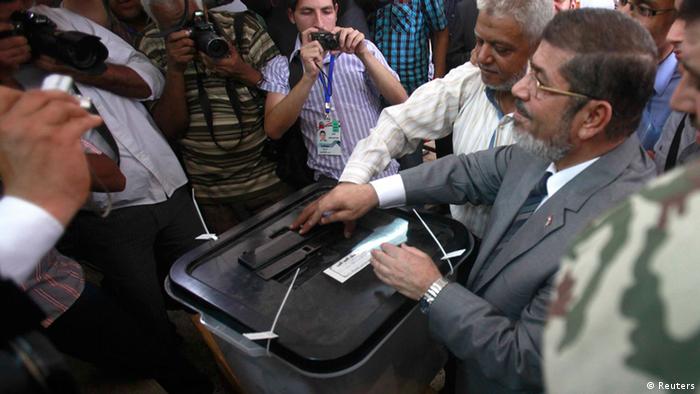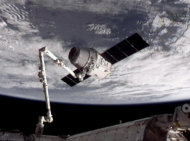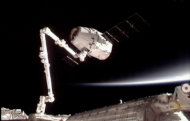Thursday, May 31, 2012
Tuesday, May 29, 2012
Lebanon was a day in the park compared to all-out civil war in Syria
The Houla massacre shows how killing can become normal
We are so shocked when confronted by atrocities that we invest them with a sense of moral purpose often absent from the act

A handout picture released by the Syrian opposition's Shaam News Network shows the mass burial of those killed in Houla. Photograph: AFP/Getty Images
In his account of his time covering the war in Vietnam for Esquire, Dispatches author Michael Herr explains how he once asked a US helicopter door-gunner how he could shoot women and children. The man answered: "It's easy. You just don't lead them so much." It was a flippant and chilling answer to a question that occurs in every conflict – how, and why, do fighters commit those atrocities?
In the aftermath of the massacre in the Syrian village of Taldou, near Houla, in Syria – where it seems in all likelihood that Shia Alawiteshabiha gunmen loyal to the regime of President Bashar al-Assadmurdered scores of Sunni civilians – it is a question that is inevitably being asked again. Having covered more than a dozen wars in which I have tried to understand the mechanisms of violence, I have come to realise a terrible reality: Herr's door-gunner, in his callous reply, was right.
Because we are so shocked when confronted by atrocity and war crimes, especially involving women and children, we tend to invest them with a sense of moral – or immoral – drama and purpose often absent from the act.
That is not to say that we should not find these killings abhorrent, or demand that those responsible be brought to justice. But in these circumstances people kill because they can; because they believe they can act with impunity; because they have been asked to and rationalised the utility of the act; and because they have persuaded themselves that their victims' humanity is of lesser value than their own.
What I am talking about is something more commonplace than Hannah Arendt's notion of the "banality of evil"; something summed up for me in a remarkable picture taken by my friend Ron Haviv when he photographed the Serb militia of "Arkan" Ražnatovic and his men-murdering civilians. In that picture, one of Arkan's "Tigers" is seen "dead checking" a Bosnian Muslim woman they have shot by kicking her, a cigarette held insouciantly aloft. Not banal, but casual.
That is the real question: how is it that killing civilians can come to be normal for those who are doing it.
In Rwanda during the Hutu interahamwe killing, as Philip Gourevitch, author of We Wish to Inform You That Tomorrow We Will Be Killed With Our Families, documented, gangs had been primed by hate radio with the notion that their victims were "cockroaches". It is a mistake, however, to believe that people can be persuaded to commit crimes against humanity by a short-term exposure to the rhetoric of hate. In massacres with a sectarian component, – which appear, at first sight at least, to have been a component in what occurred in Taldou, regardless of what orders were given by officials of the regime – the process of dehumanisation is likely to have been the slow work of a lifetime.
Paul Connolly, a Northern Irish academic, established in a piece of seminal research on sectarian attitudes conducted at the end of the Troubles that such a process begins very young indeed, formed by family, community and culture. He discovered that by the age of three, children from Catholic communities were already twice as likely to be hostile to a police force regarded as pro-British as Protestant children; by six, a third of children strongly identified with their community, while a significant minority were already making sectarian statements.
Similar research, conducted by Daniel Bar-Tal at Tel Aviv University, asked Israeli children to explain what "Arab" meant to them, identifying similar negative connotations becoming established in early years by the same social mechanisms. In peacetime, these tensions between groups are manageable, to a degree. But when conflict comes, it imposes its own explicit values – a "conflict culture" that values in-group cohesion and out-group hostility, which not only plays on these existing tensions, (from negative stereotyping to the dehumanisation of the other), but actually ascribes to them a positive value.
In these kind of conflicts, those who display the fiercest loyalty to their own group and fiercest hatred of the "other" have a special usefulness – providing not only the most ruthless killers because they are challenged the least by the morality of what they are doing, but often also acting as examples of what the new culture of conflict "requires" of all members of the group.
For in the end, this is what war does – and not only in authoritarian regimes like that of Assad. The same processes occur whenever men are asked to kill others. It is why each generation throws up its horrors, and why we should not be surprised even as we are horrified by each new My Lai, each new Sabra and Shatila, or each new Srebrenica.
Houla: Who did it?
OR
How Bad Was It? It doesn't get any worse. This is about as appalling as the human mind and deed can sink. Who could do this? More people than you think possible.
Robert Fisk: The West is horrified by children's slaughter now. Soon we'll forget
The Algerian FLN regime got away with it, after 200,000 dead – compared to the mere 10,000 killed so far in Syria's war
Bashar al-Assad will get away with it. He got away with Deraa. He got away with Homs. And he'll get away with Houla. So will the armed opposition to the regime, along with al-Qa'ida and any other outfits joining in Syria's tragedy. Yes, this may be the critical moment, the "tipping point" of horror, when Baathist collapse becomes inevitable rather than probable. And dear Mr Hague may be "absolutely" appalled. The UN, too. We all are.
But the Middle East is littered with a hundred Houlas, their dead children piled among the statistics, with knives and ropes as well as guns among the murder weapons. And what if Assad's soldiers let their Alawite militia do their dirty work? Didn't the Algerian FLN regime use "home guard" units to murder its opponents in the 1990s? Didn't Gaddafi have his loyalist militias last year, and Mubarak his jailbird drugged-up ex-cops, the baltagi, to bash opponents of his regime? Didn't Israel use its Lebanese Phalangist proxies to intimidate and kill its opponents in Lebanon? Wasn't this, too, "rule by murder"? And come to think of it, wasn't it Bashar al-Assad's uncle Rifaat's Special Forces who massacred the insurgents of Hama in 1982 – speak this not too loudly, for Rifaat lives now between Paris and London – and so who thinks Bashar can't get away with Houla? The Algerian parallel is a frightening one. The FLN's corrupt leadership wanted a "democracy", even held elections. But once it was clear that the Islamist opposition – the luckless Islamic Salvation Front – would win, the government declared war on the "terrorists" trying to destroy Algeria. Villages were besieged, towns were shelled – all in the name of fighting "terror" – until the opposition took to slaughtering civilians around Blida, thousands of them, babies with their throats cut, women raped. And then it turned out the Algerian army was also involved in massacres. For Houla, read Bentalha, a place we have all forgotten; as we will forget Houla.
And we Westerners, we huffed and puffed, and called upon both sides in Algeria to exercise "restraint", but wanted stability in France's former colony – and let's not forget that Syria is a former French "mandate" territory – and were very worried about al-Qa'ida-style insurgents taking over Algeria and, in the end, the US supported the Algerian military just as the Russians are supporting Syria's military today. And the FLN got away with it, after 200,000 dead – compared to the mere 10,000 killed so far in Syria's war.
And it's worth remembering that, faced with their 1990s insurrection, the Algerians cast around desperately for countries from which they could take advice. They chose Hafez al-Assad's Syria and sent a military delegation to Damascus to learn how the regime destroyed Hama in 1982. Now the Americans – who six months ago were characteristically casting Bashar as a "dead man walking" – prefer a Yemen-type ending to the Syrian war, as if Yemen's crisis wasn't bloody enough. But replacing Assad with a thug from the same patch (the Sanaa "solution") is not what the Syrians will settle for.
Yes, it's a civil war. And yes, Houla may be the turning point. And yes, now the UN are witnesses. But the Baath party has roots that go deeper than blood – ask any Lebanese – and we in the West will soon forget Houla when another YouTube image of death flicks on to our screens from the Syrian countryside. Or from Yemen. Or from the next revolution.
Guns for hire: Assad's 'shabiha'
The Egyptian revolution had to contend with Hosni Mubarak's thugs, or baltagi. The Syrian opposition faces what it calls the shabiha. The name comes from the Arabic word for ghost and describes the armed supporters of Bashar al-Assad, pictured, who have worked alongside the army to crush protests. The opposition has accused the gangs, recruited primarily from the President's Alawite sect, of a campaign of intimidation that has included executions. Some in the international community have accused the Assad regime of "outsourcing repression". Richard Hall
Monday, May 28, 2012
Sunday, May 27, 2012
Who would have thought that the Egyptian elections are not conforming to plan?

An Islamist and a former member of the Mubarak regime placed well in the first round of presidential elections in Egypt. The result has split the country into two camps, writes DW's Rainer Sollich.
Even though the final results are not yet in, the losers of Egypt's first free presidential election have already been decided. The young, liberal activists who with admirable courage threw out Hosni Mubarak more than a year ago.

Rainer Sollich
The so-called Facebook revolutionaries fought for 15 months for more justice, democracy and a modern civil society - all of which represented radical changes for their country. The entire world, and we Europeans in particular, watched and lent our sympathy to the revolution against Mubarak's regime of despots. We were reminded of the historic changes that many of us witnessed in Central and Eastern Europe.
But the overwhelming victory by the Muslim Brotherhood and Salafists in last winter's parliamentary elections changed euphoria into disillusionment and made clear that the majority of the Egyptian people had other priorities at the time. People were looking for security and stability. They needed jobs and economic prospects. And whether we like it or not, many of them wanted Islam to have greater influence in Egypt.
At the same time, a similarly sized part of the population was willing to accept the undemocratic influence of the army and former Mubarak loyalists if it meant preventing Islamists from gaining too much power. The country was split in two camps.
At the same time, a similarly sized part of the population was willing to accept the undemocratic influence of the army and former Mubarak loyalists if it meant preventing Islamists from gaining too much power. The country was split in two camps.
An undesirable result
The victory of Mohammed Morsi, a candidate closely linked to the Muslim Brotherhood, in the first round of presidential voting is clearly not the result that we Europeans would have wished for. Members of the Muslim Brotherhood are certainly not naive fanatics. They are deeply rooted in Egyptian society, and their social work and decades of opposition to the Mubarak regime have lent them a great deal of recognition. They connect hard-liners as well as several moderate and pragmatic powers. Still, the party's understanding of democracy, freedom of religion and the role of women in society are causes for concern.
On the other hand, there is also reason for uneasiness about the ringing endorsement for former Mubarak ally Ahmed Shafiq. He would be a near guarantee that Egypt does not become a state ruled by Sharia law. But he is a representative of the old system - and many liberal Egyptians regard him as a counter-revolutionary.
The runoff in June could end up posing a seminal choice between Islamists and supporters of the old Mubarak system.
Revolutionaries not obsolete
There are also positive remarks to be made: Egyptians used the mainly peaceful election to prove that they are "mature enough" for democracy, a fact Mubarak repeatedly professed was not the case. Now it will be up to Egyptians to push forward the reforms that have recently stumbled along the path to enactment. Military leaders have to surrender their power rather than pulling the strings from behind the scenes, and Islamic powers cannot be given the opportunity to do away with hard-won freedoms.
What Egypt needs are political watchdogs, including a free, courageous press and loyal opposition - even outside of parliament and the president's office. The first batch of revolutionaries may seem to have had their power stripped away of them in Egypt's democratically elected institutions, but they will continue to be needed in the future.
Author: Rainer Sollich / sms
Editor: Greg Wiser
Editor: Greg Wiser
Friday, May 25, 2012
This is Big, Real Big
VIEW SLIDESHOWS
-
Suspect confesses in Etan Patz case
33 photos - Thu, Apr 19, 2012 -
First Lady Michelle Obama
31 photos - Thu, May 3, 2012 -
Rare treasure trove of ancient jewelry found
5 photos - 2 hrs 19 mins ago
CAPE CANAVERAL, Fla. (AP) — The privately bankrolled Dragon capsule made a historic arrival at the International Space Station on Friday, triumphantly captured by astronauts wielding a giant robot arm.
SpaceX is the first private company to accomplish such a feat: a commercial cargo delivery into the cosmos.
"There's so much that could have gone wrong and it went right," said an elated Elon Musk, the billionaire maestro of SpaceX.
"This really is, I think, going to be recognized as a significantly historical step forward in space travel — and hopefully the first of many to come."
NASA astronaut Donald Pettit used the space station's 58-foot robot arm to snare the gleaming white Dragon after a few hours of extra checks and maneuvers. The two vessels came together while sailing above Australia.
"Looks like we've got us a dragon by the tail," Pettit announced from 250 miles up once he locked onto Dragon's docking mechanism.
NASA controllers applauded as their counterparts at SpaceX's control center in Hawthorne, Calif. — including Musk — lifted their arms in triumph and jumped out of their seats to exchange high fives. The two control rooms worked together, as equal partners, to pull off the feat.
The company's youthful-looking employees — the average age is 30 — were still in a frenzy when Musk took part in a televised news conference. They screamed with excitement as if it were at a pep rally and chanted, "E-lon, E-lon, E-lon," as the 40-year-old Musk, wearing a black athletic jacket with the SpaceX logo, described the day's events.
Alcohol was banned from the premises during the crucial flight operation, Musk noted, "but now that things are good, I think we'll probably have a bit of champagne and have some fun." The crowd roared in approval.
Although cargo hauls have become routine, Friday's linkup was significant in that an individual company pulled it off. That chore was previously reserved for a small, elite group of government agencies.
Not only that, the reusable SpaceX Dragon is designed to safely return items, a huge benefit that disappeared with NASA's space shuttles. It's the first U.S. craft to visit the station since the final shuttle flight last summer.
Two hours after the capture, the crew attached the Dragon to the space station as the congratulations poured in.
"Now that a U.S. company has proven its ability to resupply the space station, it opens a new frontier for commercial opportunities in space — and new job creation opportunities right here in the U.S.," NASA Administrator Charles Bolden said in a statement.
"Nearly 43 years after we first walked on the moon, we have taken another step in demonstrating continued American leadership in space," said Apollo 11's Buzz Aldrin, the second man to step onto the moon.
The bell-shaped capsule— 19 feet tall and 12 feet across — is carrying 1,000 pounds of supplies on this unprecedented test flight. The crew starts unpacking Saturday and will have just under a week to unload the food, clothes and other contents.
After this test flight, SpaceX — officially known as Space Exploration Technologies Corp. — has a contract to make a dozen delivery runs. It is one of several companies vying for NASA's cargo business and a chance to launch Americans from U.S. soil.
SpaceX launched the capsule from Cape Canaveral on Tuesday with its Falcon 9 rocket. On Thursday, the Dragon capsule came within 1½ miles of the space station in a practice fly-by. It returned to the neighborhood early Friday so Pettit, along with Dutch astronaut Andre Kuipers could capture it with the station's robot arm.
First, the capsule went through a series of stop-and-go demonstrations to prove it was under good operating control.
NASA ordered extra checks of the Dragon's imaging systems as the capsule drew ever closer to the space station, putting the entire operation slightly behind schedule. At one point, SpaceX controllers ordered a retreat because of a problem with on-board tracking sensors.
Given that the Dragon is a brand new type of vehicle and this is a test flight, the space agency insisted on proceeding cautiously. A collision by vehicles traveling at orbital speed — 17,500 mph — could prove disastrous for the space station. NASA's space station program manager, Mike Suffredini, said the way the SpaceX team handled the problem and the entire operation was "remarkable."
President Barack Obama is pushing commercial ventures in orbit so NASA can concentrate on grander destinations like asteroids and Mars. Obama's chief scientific adviser, John Holdren, called Friday's linkup "an achievement of historic scientific and technological significance."
"It's essential we maintain such competition and fully support this burgeoning and capable industry to get U.S. astronauts back on American launch vehicles as soon as possible," he said in a statement.
Without the shuttle, NASA astronauts must go through Russia, an expensive and embarrassing situation for the U.S. after a half-century of orbital self-sufficiency. Once companies master supply runs, they hope to tackle astronaut ferry runs.
Musk, who founded SpaceX a decade ago and helped create PayPal, said he can have astronauts riding his Dragon capsules to orbit in three or four years.
The space station has been relying on Russian, Japanese and European cargo ships for supplies ever since the shuttles retired. None of those, however, can bring anything of value back; they're simply loaded with trash and burn up in the atmosphere.
By contrast, the Dragon is designed to safely re-enter the atmosphere, parachuting into the ocean like the Mercury, Gemini and Apollo capsules did back in the 1960s. Assuming all goes well Friday, the space station's six-man crew will release the Dragon next Thursday after filling it with science experiments and equipment.
Going into Tuesday's launch of this Dragon, NASA had contributed $381 million to SpaceX in seed money. The company has invested more than $1 billion in this commercial effort over the past 10 years.
The real Obama budget deficit for 2011: 5 trillion dollars
Fri May 25, 2012 12:53AM GMT

If the U.S. government used the same accounting methods that most U.S. U.S.
If the U.S.
Sadly, as USA Today explained, the real budget deficit for 2011 would have been almost four times as large as was officially reported if standard accounting practices had been used....
Under those accounting practices, the government ran red ink last year equal to $42,054 per household - nearly four times the official number reported under unique rules set by Congress. A U.S.
The big difference between the official deficit and standard accounting: Congress exempts itself from including the cost of promised retirement benefits. Yet companies, states and local governments must include retirement commitments in financial statements, as required by federal law and private boards that set accounting rules.
The amount of red ink the federal government ran up in 2011 alone was almost equal to median household income.
How much worse can things get?
Unfortunately, we have become a nation that is completely and totally addicted to debt.
We have no idea how to live within our means.
Right now, the mainstream media in the United States
In essence, a bunch of tax cuts are scheduled to expire and a few spending cuts are scheduled to kick in.
Everybody is deeply concerned about what such "austerity" could do to the struggling U.S.
Under those fiscal conditions, which will occur under current law, growth in real (inflation-adjusted) GDP in calendar year 2013 will be just 0.5 percent, CBO expects-with the economy projected to contract at an annual rate of 1.3 percent in the first half of the year and expand at an annual rate of 2.3 percent in the second half. Given the pattern of past recessions as identified by the National Bureau of Economic Research, such a contraction in output in the first half of 2013 would probably be judged to be a recession.
Well, yes, if taxes rise and government spending is cut it will probably trigger another recession.
That is what "austerity" does. It causes economic growth to slow down. Just look at Greece
But can we really afford to continue stealing trillions of dollars from future generations just to make short-term economic conditions better?
This is what I wrote about the other day. The U.S.
This was explained further in a recent article by Peter Schiff ....
From 2008 to 2009 our national GDP (of around $14 trillion) contracted by $212 billion. To prevent any further dips, the government aggressively spent, borrowing heavily to do so. To the relief of just about everyone, these moves did stop the nominal contraction. From 2010 to 2011 the U.S. GDP expanded by $502 billion, and from 2011 to 2012 it added an additional $508 billion. All told, from the end of 2008 the U.S.
But those gains came at a very high price.
The combined federal deficits for the same time frame come in at a staggering $4.2 trillion! In 2009 alone the feds chalked up a chart breaking $1.4 trillion in debt (the deficit was a mere $161 billion in 2007). In other words, we borrowed five times more than we grew. This "strategy" for growth is no different from an individual who loses half his income, but continues to spend by running up credit card debt. Could this be described as economic growth? But that's just how we are describing our current economy, and for the large part, expert economists, politicians, investors, and academics all agree.
We don't have real economic growth in America
What we have is debt-fueled prosperity. Without unprecedented borrowing by the federal government we would be in a full-blown economic depression right now.
So where in the world is the U.S.
The Fed is doing all of this buying in a desperate attempt to keep interest rates low.
It is a Ponzi scheme that cannot last too much longer.
But most Americans have no idea how close to the edge we really are.
Most Americans just assume that we will have prosperity forever because that is what always happens in America
They don't bother to look at the man behind the curtain.
They don't bother to notice that Barack Obama is stealing 150 million dollars an hour from our children and our grandchildren so that we can continue to enjoy our inflated standard of living.
Please wake up America
SM







